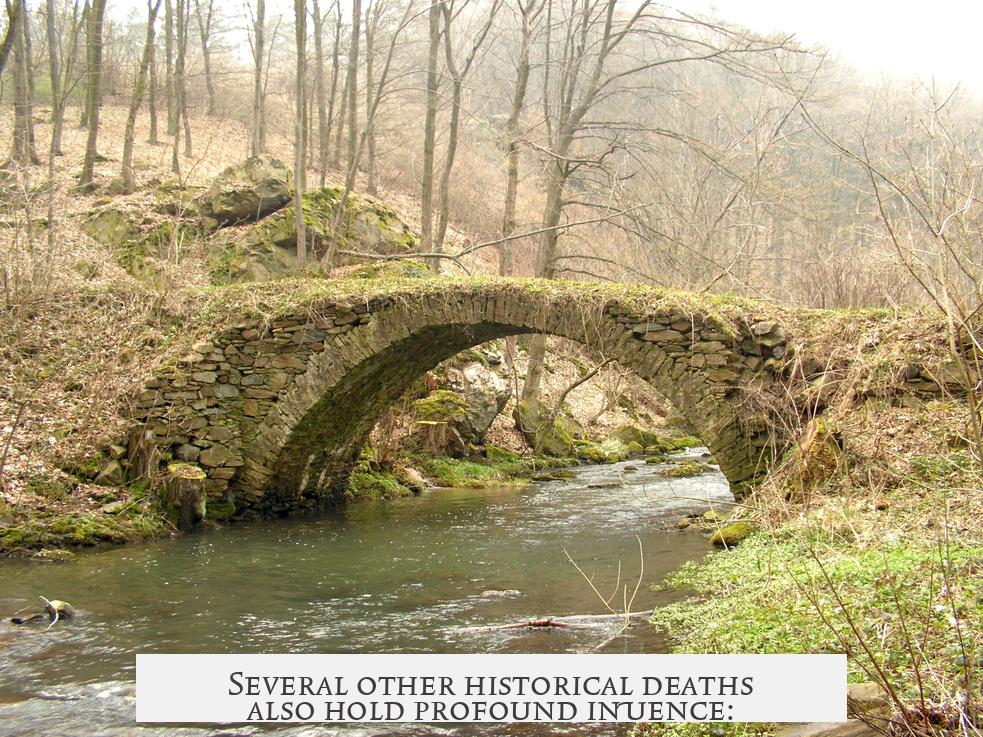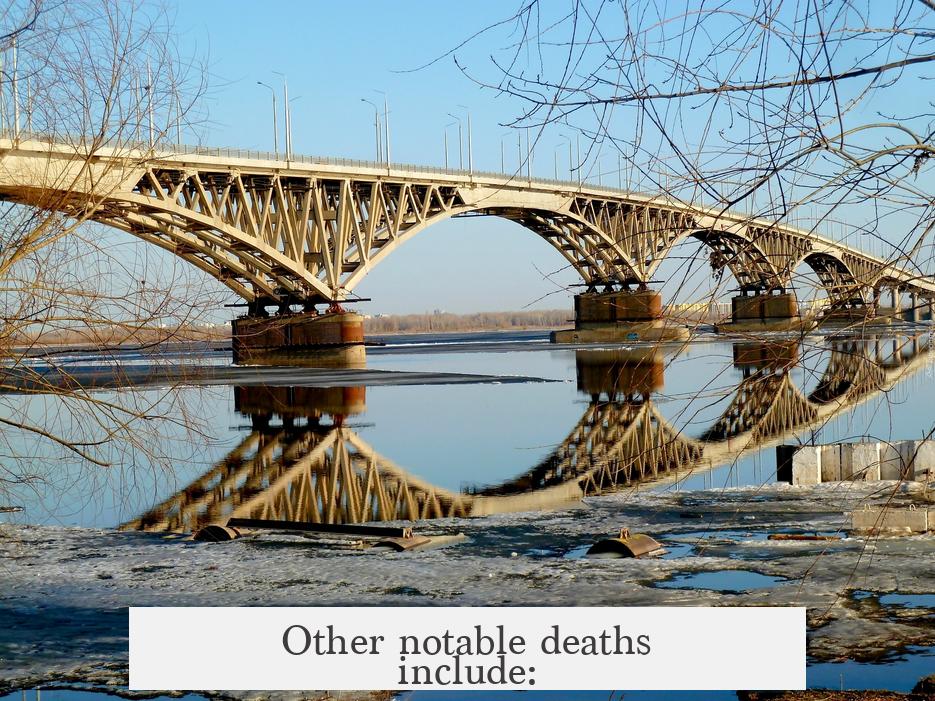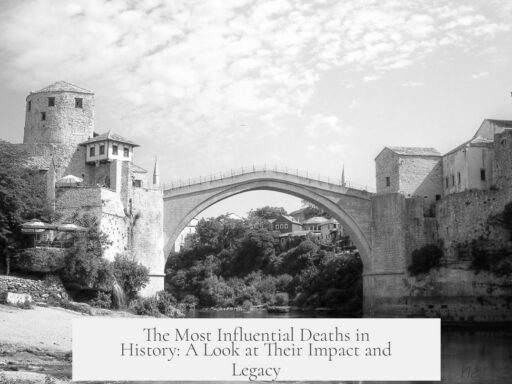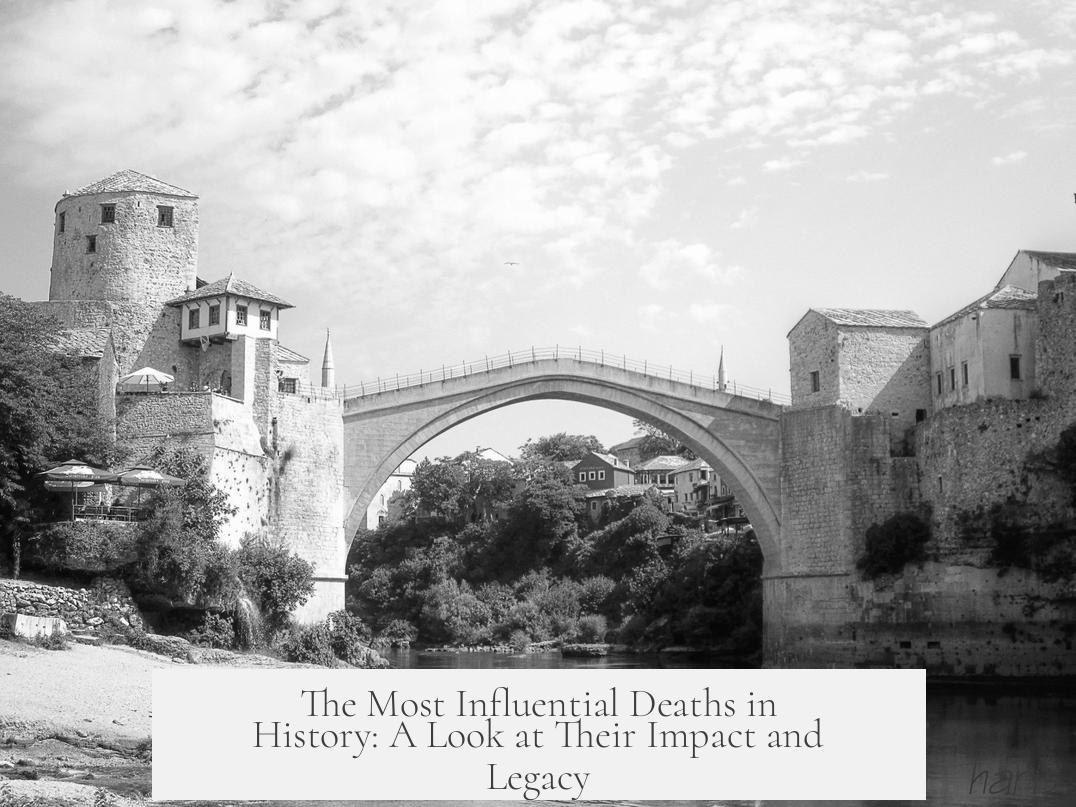The most influential death in history is arguably that of Jesus Christ. His death acts as a pivotal event with far-reaching global consequences. It sparked the rise of Christianity, which shaped empires, cultures, politics, and societies for over two millennia. The long-term effects include the Roman Empire’s Christianization, the Byzantine Empire, the Crusades, European colonization, and major historical conflicts, influencing billions worldwide even today.

Jesus’ death altered spiritual and secular history alike. It triggered the spread of a new religion that became dominant in the Western world. Christianity influenced the formation of states, legal systems, ethical norms, and art. The narratives of Jesus’ martyrdom inspired generations to risk all for their beliefs, reshaping Western civilization’s trajectory.
Several other historical deaths also hold profound influence:

- Alexander the Great died young before consolidating his vast empire. This fragmentation altered the geopolitical landscape, paving the way for the rise of Rome and the division between East and West.
- Archduke Franz Ferdinand was assassinated in 1914, triggering World War I. His death undermined Austro-Hungarian stability and contributed to global conflict that redefined the 20th century.
- Julius Caesar’s assassination ended the Roman Republic, setting the stage for the Roman Empire under Augustus Octavian. His death destabilized politics and shifted power structures in Rome dramatically.
- Charles the Bold, Duke of Burgundy, died in battle in 1477, leading to the rise of the Habsburgs and altering European power balances, eventually impacting New World colonization and European rivalries.
- Uthman’s assassination, the third Rashidun Caliph, sowed discord that led to the Sunni-Shia split, a division still significant in Middle Eastern geopolitics.
Additional pivotal deaths impacted empires and political landscapes:
- Kaiser Frederick III’s early death led to a more militaristic rule by his son Wilhelm II, escalating towards World War I.
- Genghis Khan and Ogedei Khan’s deaths fractured the Mongol Empire, curtailing further expansion into Europe.
- Holy Roman Emperor Frederick I’s death during the Third Crusade shifted the crusader momentum and affected the Middle Eastern power dynamic.
- Oda Nobunaga’s assassination disrupted Japan’s unification, which would have transformed East Asian history earlier.
- Henry V of England died shortly after gaining claim to the French throne, halting potential Anglo-French dominance.
Other notable deaths include:

| Historical Figure | Significance of Death |
|---|---|
| Nader Shah | Assassination caused Persia’s decline after briefly becoming the world’s most powerful state. |
| Timur | Death halted his empire’s expansion; his empire quickly collapsed. |
| Majorian | Assassination prevented the revival of the Western Roman Empire. |
| Crassus | Death precipitated Roman civil wars and the Republic’s collapse. |
| Sebastian I of Portugal | Death led to Portuguese union under Spain and decline of Portuguese Empire. |
| Tzar Alexander II | Assassination ended reforms in Russia, influencing the rise of revolutionary movements. |
| John F. Kennedy | Death shifted Cold War diplomacy, affecting U.S.-Soviet relations. |
These deaths changed entire regions and eras by causing shifts in power, igniting wars, or ending periods of reform and expansion. Their impacts illustrate how individual mortality can redirect history’s course.
Key takeaways:

- Jesus Christ’s death has the most profound and lasting global influence through the rise of Christianity and its cultural-political impact.
- Alexander the Great’s early death fragmented his empire, shaping the future of Western and Middle Eastern history.
- Assassinations like Franz Ferdinand’s directly triggered major wars with worldwide consequences.
- Deaths of rulers like Julius Caesar, Charles the Bold, and Uthman altered the power balance and led to new political systems or religious divides.
- Many influential deaths halted ambitious empires, preventing further expansion and reshaping geopolitical maps.
Who Was the Most Influential Death in History?
Picking the most influential death in history is like choosing the ultimate plot twist that shaped our modern world. But if pressed, Jesus Christ’s death stands out as the most profoundly influential, triggering cultural, political, and social upheavals across centuries and continents.

Let’s dive into why his death, along with others, dramatically changed history in ways we still feel today—and explore some fascinating contenders for this heavy title.
Why Jesus Christ’s Death Tops the List
Whether you’re religious or not, the historical impact of Jesus Christ’s death is undeniable. His execution became the cornerstone of Christianity, a faith followed by a third of the global population. The ripple effects of this religious movement shaped empires, cultures, wars, and societies over two millennia.
Consider that the Roman Empire’s adoption of Christianity under Constantine eventually led to the Byzantine Empire. The Crusades—religious wars fueled by Christian zeal—altered the Middle East for centuries. The conquest of the New World by European powers was deeply entangled with Christian missions. Even conflicts like the Thirty Years War—a brutal chapter in European history—were influenced by religious divides stemming from this legacy.
In fact, the idea of Jesus as a martyr who saved humanity from sin—not to mention the narratives around his resurrection—has motivated vast social institutions, cultural norms, and political ideologies. His death wasn’t just a moment; it was a catalyst that redefined history.
Alexander the Great: The Empire That Never United
Now, onto another big name—Alexander the Great. His early death at only 32 left his empire in turmoil. Had he lived longer, he might have united vast territories across Europe and Asia indefinitely.
Instead, his empire fractured swiftly. This disunity paved the way for the Roman Empire to rise and for the Parthian Empire to form. The later division between East and West may never have existed. Imagine a single super-empire dominating the known world for centuries—crazy to think about!
Still, historians suggest a civil war was likely inevitable, given the sheer size and diversity of his holdings. Yet, his death triggered a domino effect reshaping geopolitical boundaries dramatically.
Charles the Bold: Burgundy’s Lost Potential
Charles the Bold, Duke of Burgundy, almost rewrote European power plays. In the 15th century, his death halted the unification of the Low Countries under his rule. Had he lived and secured his empire, we might have seen a powerful “super-Prussia” centuries ahead of time.
After he died in battle impaled by Swiss mercenaries, power passed to his daughter Mary. Her marriage to Maximilian von Habsburg skyrocketed the Habsburg fortunes—later funding global colonization and shaping European empires.
Without Charles’s death, Habsburg dominance might not have reached the heights it did, altering European politics and colonial history.
The Spark That Ignited the First World War: Franz Ferdinand
The assassination of Archduke Franz Ferdinand of Austria is a textbook example of a single death sparking a global catastrophe. His murder in 1914 triggered alliances and tensions that exploded into WWI.
Ironically, he was a moderate in the Austrian court, with plans to reform the fractured empire by integrating disenfranchised ethnic groups. His death gave way to the incompetent Emperor Charles, hastening the empire’s collapse.
One shot in Sarajevo led to millions of deaths and a global reshaping that still influences international relations today.
Julius Caesar: The Fall of the Republic and The Rise of the Empire
Julius Caesar’s assassination in 44 BCE ended the decades-old Roman Republic. His death created power struggles, especially between Octavian and Mark Antony, which dissolved the republic and ushered in the Roman Empire under Augustus.
Caesar’s legacy wasn’t just political. The death of his daughter Julia, crucial to maintaining alliances within the First Triumvirate, also chipped away at Rome’s fragile political stability.
Other Influential Deaths and Their Impacts
- Tzar Alexander II attempted major reforms in Russia. His assassination halted progress, and his conservative heirs led to revolutionary tensions culminating in the Soviet era.
- Kaiser Frederick III was a liberal hope for peace in a militarizing Germany. Had he lived longer, early 20th-century European conflicts might have played out differently.
- Genghis Khan and Ogedei Khan died young, breaking up the Mongol Empire’s expansionist momentum. Their deaths allowed fragmentation when conquest might have continued.
- Holy Roman Emperor Frederick I drowned during the Third Crusade. His army’s withdrawal changed Middle Eastern power dynamics dramatically.
- Oda Nobunaga, a unifier of Japan, was murdered by a trusted general. Had he lived, Japan’s path toward peace and interaction with Europeans might have accelerated.
Unexpected Game-Changers
Sometimes, deaths of lesser-known figures also had monumental effects:
- Uthman’s assassination fractured early Islam, setting the stage for the Shia-Sunni split that persists today.
- Henry V of England died just after securing a treaty with France. Had he lived, an Anglo-French superpower could have dominated Europe.
- Nader Shah’s death led to civil war and the collapse of a briefly powerful Persia, impacting Middle Eastern history.
- Majorian, last great Roman Emperor, was assassinated just as he reunited much of Western Roman territory. His death hastened Rome’s final decline.
- Sebastian I of Portugal died leading a disastrously ambitious crusade. His death led to Spanish control over Portugal, weakening its global influence.
- John F. Kennedy’s assassination cooled Cold War diplomacy abruptly ended, ushering in decades of intense rivalry between superpowers.
So, Who Really Wore the Crown?
History’s most influential death depends on how you weigh religious, political, or geopolitical outcomes. But it’s tempting to crown Jesus Christ’s death as most influential—his martyrdom seeded a religion that shaped civilizations more profoundly than any single political assassination or empire’s fall.
His death kicked off a religious movement that’s changed the culture, laws, wars, holidays, and identities of billions. When you consider the domino effect this has had—from the rise and fall of empires to colonization, global conflict, and societal norms—it’s a death that truly altered the world like no other.
Do you agree? Or do you think a ruler’s violent fall or early demise mattered more? Could the fate of Europe under Alexander or a united France-England under Henry V have rewritten history even more? It’s a fascinating debate that historians love to dig into.
What Can We Learn From These Deaths?
Each impactful death reveals how fragile history can be. One unexpected death rewrites alliances, shatters empires, or fuels centuries-long conflicts.
For those interested in history—and even today’s politics—these lessons are invaluable. Leaders’ lives and deaths carry weight beyond their years on Earth.
So next time you think a political upheaval or global crisis is “just politics,” remember how many times a death sparked a chain reaction bending the course of human history.
In Conclusion
The idea of “the most influential death in history” is complicated. Many deaths have pivoted the fate of nations and peoples. Still, when blending global religions, long-term societal shifts, and cascading geopolitical impacts, the death of Jesus Christ emerges as uniquely transformative.
Yet, each name on this list—from emperors to conquerors to kings—reminds us: history is a story of lives lost and legacies born. Maybe that’s the ultimate take-away.
What’s your take? Whose death shaped your world the most? Drop your thoughts and keep the great history debate alive.



